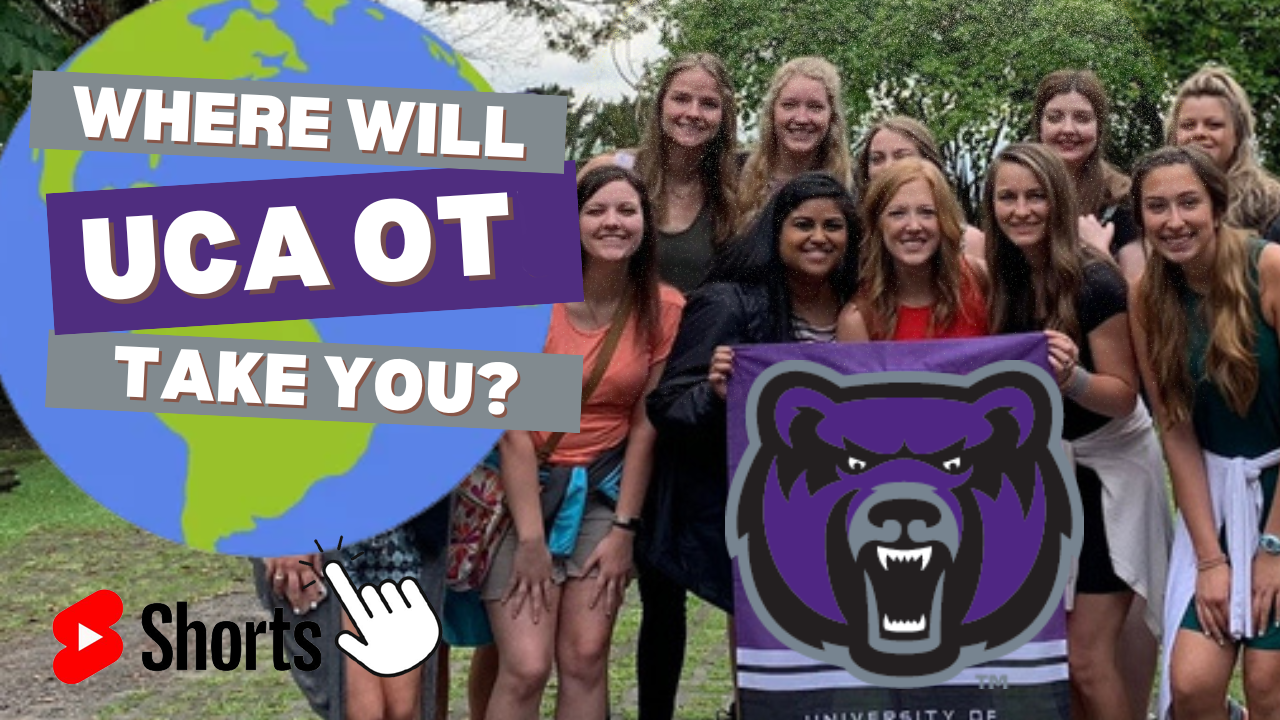Department of Occupational Therapy
The University of Central Arkansas is committed to a bright future-that includes you! At UCA, you’re provided an innovative, collaborative education within a culture of student support and success, all with one of the lowest costs of attendance in the region. Through high impact teaching practices like internships, hands-on research opportunities, and service learning, we’ll provide you with the experiences you need to grow as a person and enter the workforce confidently. We cannot wait to see you thrive!
Established in 1970, our program was the first and only program in the state for many years. As such, we have deep roots in Arkansas! Our program has established and maintained excellent learning partnerships with facilities, fieldwork educators, and community partners across the state. We prepare students to become independent practitioners capable of competently assessing and addressing the occupational needs of individuals, groups, and society in Arkansas and beyond.
 From around the world, to fulfilling your dreams…
From around the world, to fulfilling your dreams…

![]()
Our program is accredited by the *Accreditation Council for Occupational Therapy Education (ACOTE) (www.acoteonline.org) and our students at completion of the program are eligible to sit for the national certification exam for occupational therapist that is administered by the National Board for Certification in Occupational Therapy(NBCOT). Here is a link to their website for school performance data https://www.nbcot.org/Educators-Folder/SchoolPerformance
The faculty of the Doctorate of Occupational Therapy (OTD) program is dedicated to provide academic excellence, interprofessional education and community-based practice with creative and intentional experiential learning opportunities. The Doctoral Capstone and Fieldwork programs have long standing clinical and community partnerships who strive to challenge our students to become competent practitioners who will advocate and promote the profession. Our students have opportunities within the curriculum to explore individual clinical interests, develop research and capstone projects, and investigate innovative opportunities in community-based practice. These unique opportunities allow the students to define their own professional identity as therapists, researchers and leaders in the profession.
*Accreditation Council for Occupational Therapy Education (ACOTE)
7501 Wisconsin Avenue, Suite 510E
Bethesda, MD 20814
Phone: (301)-652-6611





